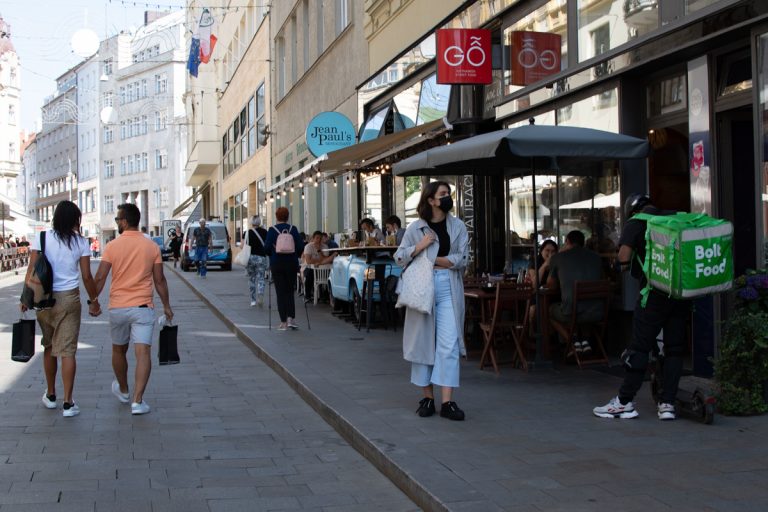A survey investigated Brno residents’ levels of satisfaction with their city, asking them which things are attractive and which should be improved. Photo Credit: KK / BD
Brno 2 Sept. (BD) – The sociological study, entitled “The character of Brno in the attitudes of its residents” deals with the subjective perception of the quality of life in Brno, monitoring residents’ assessment of various aspects of the city. It repeatedly measures satisfaction with certain factors of life in Brno, including housing, job opportunities, education, safety, health and social care, leisure, cleanliness of the city, and others, as well as their overall attitudes towards the city.
The first wave of research took place in 2009, with subsequent waves in 2013 and 2017. The fourth wave was conducted in the spring of 2022. The sample of respondents was selected according to a quota sampling method, so that the representation of respondents from each group corresponds to their share in the entire population of Brno. Both people with permanent residence in Brno and those without permanent residence but living in Brno were included. The sample size is always set at 1,000 respondents and this year the analysis included questionnaires from 1,016 respondents.
Based on the results of the survey, residents’ attitudes towards Brno have remained more or less stable over time, and their liking for the city has remained very high over the years. For example, nine out of ten residents said they liked the city of Brno. However, compared to 2017, the number of respondents who stated that ‘I like Brno a lot and I can hardly imagine living elsewhere’ decreased by 10 percentage points. Furthermore, the percentage of those who have no intention of moving from Brno is decreasing slightly, while the percentage of those who are considering moving is slightly increasing.
In the latest survey, an impression emerged of Brno as a university city where culture thrives and as a business centre where people shop. The statements with the highest level of approval were: ‘Brno is a university city’, ‘Brno offers many interesting cultural monuments’, ‘Brno offers a wide range of interesting activities’ and ‘Brno offers many shopping opportunities’. The lowest levels of agreement were recorded with the statements ‘Brno is a good place for cycling’, ‘Brno is good at promoting itself internationally’, ‘Brno is a good place for driving’ and ‘Brno has a good range of housing (for all groups of people)’. The statements related to tourism, namely ‘Brno is a tourist centre’ and ‘Brno is good at promoting itself within the Czech Republic’, showed the greatest shift towards a better rating.
Satisfaction with Brno as a place to live is very high, with 93% of the respondents being very or fairly satisfied with living here in general. In all years surveyed, satisfaction with Brno was high. This shows that despite some partial negative evaluations, mainly related to transport and accommodation, more people are satisfied with life in the city than dissatisfied.
The research also analysed satisfaction with individual areas of life in Brno. The area rated worst is safety, while the indicator with the most negative trend over time was Housing. The most successful were shopping opportunities, recreational activities, the availability of restaurants, cafés, pastry shops (generally summarised under Gastronomy) and culture.
Through an open question, based on a spontaneous response, respondents were given the opportunity to describe Brno’s major strengths. What they considered to be the greatest attractions were: Architecture, monuments, Petrov, and Špilberk. In addition, locals appreciate the beauty of nature, the Brno Dam, and the green areas.
Likewise, respondents expressed their opinion on what the most serious problems in Brno are. According to these responses, the city’s most serious problem is clearly perceived to be the traffic situation, followed by parking. Among the other frequent responses were also the railway station and its immediate surroundings, socially delinquent citizens, and mess or lack of cleanliness. Housing, in particular affordability, rents and house prices, was also a frequent response.
The research also touched on numerous other aspects, especially within the city administration and public opinion on blue parking zones. Those interested can consult the research report on MMB.






